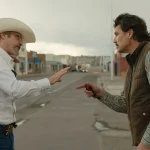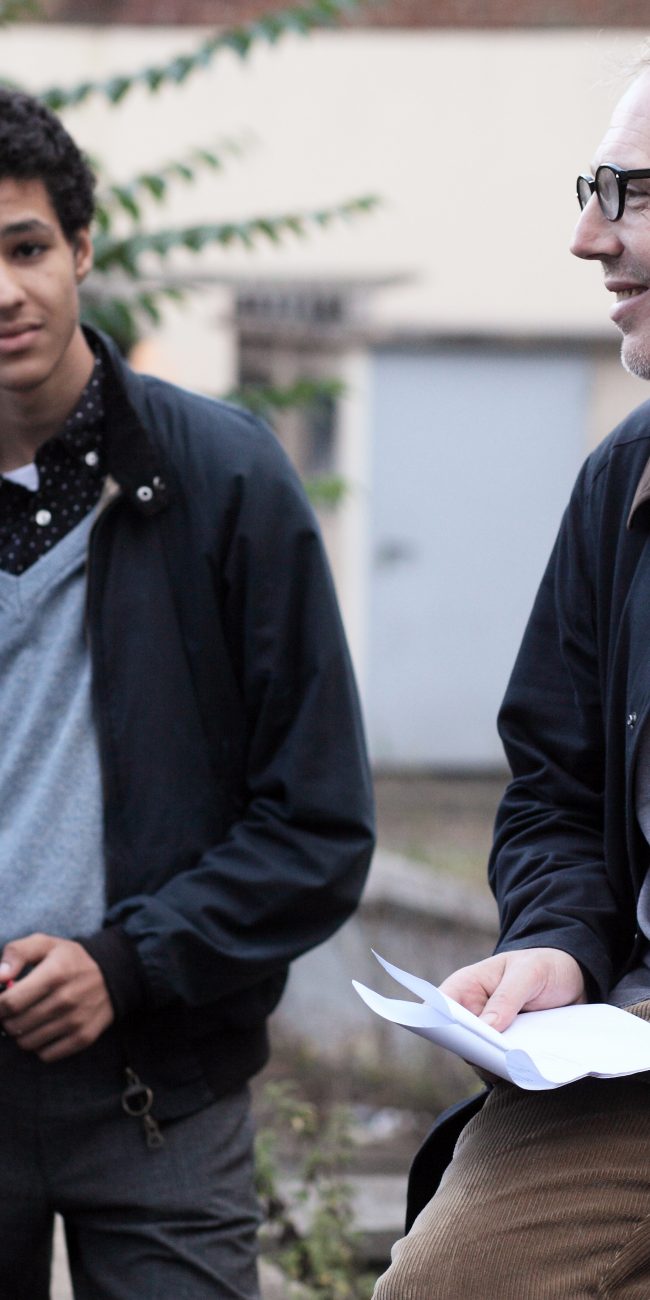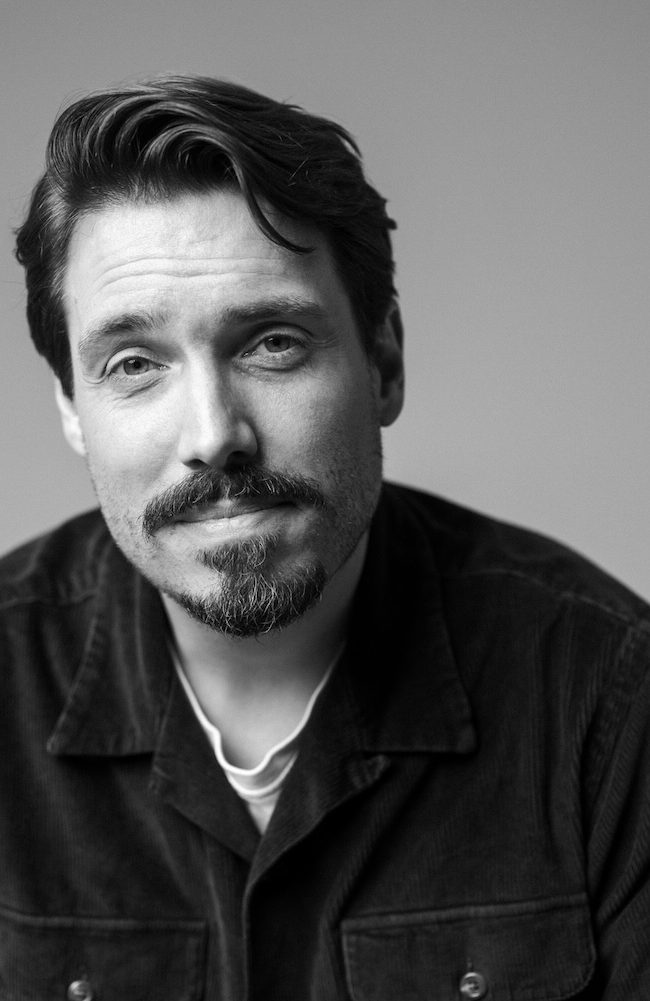A Conversation with David Hinton & Thelma Schoonmaker (MADE IN ENGLAND: THE FILMS OF POWELL AND PRESSBURGER)
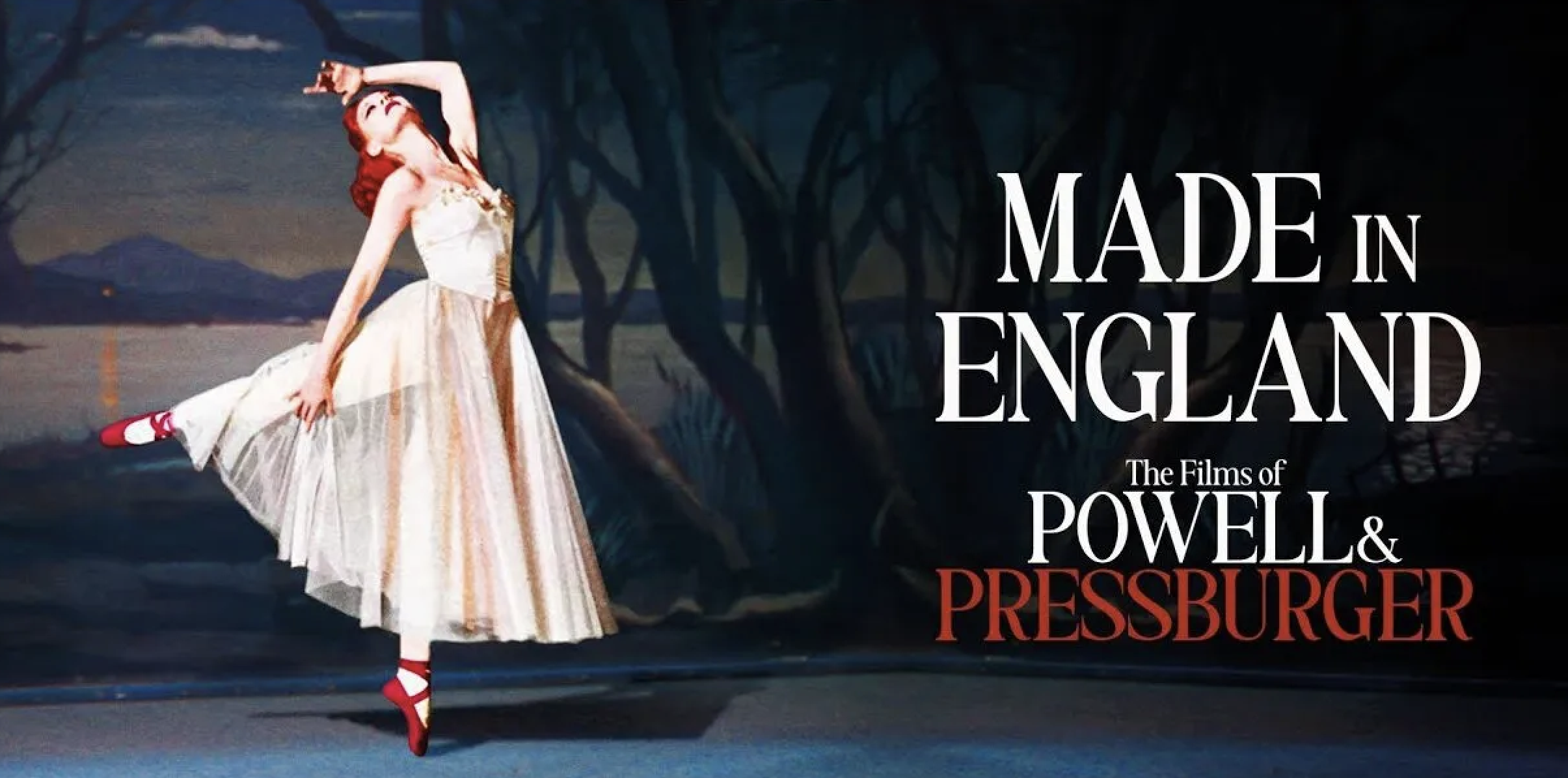
Made in England: The Films of Powell and Pressburger was written and directed by David Hinton and executive produced by Thelma Schoonmaker. The film is essentially 2 hrs + of Martin Scorsese expressing his deep love and admiration for the films these men made. As a cinema lover it was a blast and I recommend it to people unfamiliar with their work. David Hinton has been making documentaries for television and the big screen since the 80s. Thelma Schoonmaker has served as the editor for every Martin Scorsese film, a producer on countless others and is one of the biggest supporters of film restoration in the world. It was a true honor to sit down with both David and Thelma in the following conversation edited for length and clarity:
Hammer To Nail: I really enjoyed this film. It was a blast. I could have watched it for another 10 hours. What was the inception of this project and how did Martin wind up narrating it?
David Hinton: It was Thelma who got it going. She was approached by Nick Barley, one of the producers on the film and he ran a distribution service that distributed classic movies. There was this idea that there ought to be a definitive Powell & Pressburger documentary. He approached Thelma with the idea and she proposed me as the director because in the 1980s I made a film for television with Michael. Michael and Thelma both liked the film and that’s why Thelma chose me as the director. My very first thought as director was that Scorsese had to present it. There is no one I would rather hear talk about film than Scorsese. For me, he is definitely the greatest living film director. I knew he had a deep connection to these films and a deep personal connection to Michael himself. Once he agreed to do it we were off and running.
Thelma Schoonmaker: It was very important that David made that decision because there could have been a lot of talking heads. David was very firm that it should be only Marty, which is one of the great powers of the documentary. Marty’s emotion builds as the movie goes on. David took all of the things Michael and Emerich had written, reviewed all of it and out came this beautiful script. It was quite a big job and Marty worked on it with him.
HTN: David what was that writing process like on this film? Thelma, I feel like a lot of people get confused about the difference between producer and executive producer, could you explain what your role looked like in this film?
TS: It became a beautiful collaboration between everyone. Once we finished Killers of the Flower Moon, I was able to go in and help with the edit along with Marty. I never take a credit for a movie I have not edited myself. David did such a good job and we had great editors, so executive producer just made the most sense.
DH: Thelma is being modest. Scorsese and Thelma did a lot of the editing on this film. They just did not take credit for it. The whole thing was a very collaborative process, including the edit.
HTN: I would love to hear about your guys’ first time seeing one of their films and how they have personally inspired you in your work?
DH: A very vivid memory for me was seeing A Matter of Life and Death on television. It has the best opening of any film. You come from the galaxy, hone in on Earth, there is WWII going on and the audience is in the cockpit of a burning bomber. You got this guy free falling to his death and falling in love at the same time. It is one of the most powerful beginnings I have ever seen. Visually it is just so vivid. It has burned itself into my brain. That is my first memory of their work.
TS: I saw The Red Shoes when I was 12 and I did not know how to cope with it. It was burned into me. Later in life there was this great program Marty talks about in the doc called Million Dollar Movie where they would run the same movie 9 times in one week. He studied every single one of those. I was not allowed to look at television during the day or late at night. There were a couple hours every day where I would get home from school before she [my mother] got home from work and I would look at whatever was on Million Dollar Movie. It was The Life and Death of Colonel Blimp and I will never forget seeing that one. I wept the entire time.
HTN: Unfortunately, I am someone who has never seen any of their films, however, after the documentary I plan on watching all of them as soon as possible.
TS: Great!!
HTN: Was that something you guys considered when making the documentary, not only paying proper homage and respect to the filmmakers but making it appealing to people who were less familiar with their films?
TS: One of the things about Marty is that when he talks about films he does not preach. He is not like a professor. He engages you, he excites you. That is what has happened to you! That is the great gift he gave to this documentary.
DH: 100% that was the whole intention of this documentary. To get people excited about the movies and there are plenty of opportunities to do so!
TS: The Academy is doing a retrospective of their films right now! I will be out there to introduce a nitrate print of Black Narcissus which is something you never get to see. They are running 10 films and you should try to see them all!
HTN: I will definitely be at some of those showings
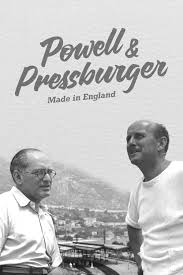 DH: We have Thelma to thank for the fantastic forms that these films exist in. Both she and Scorsese worked so hard to have them all restored in the best possible quality. If you go to the retrospective, you are going to see a film that was made in the 1940s but looks like it was made yesterday. They are so vivid and just so beautifully restored. Visually still glowing. That technicolor look is still so fantastic.
DH: We have Thelma to thank for the fantastic forms that these films exist in. Both she and Scorsese worked so hard to have them all restored in the best possible quality. If you go to the retrospective, you are going to see a film that was made in the 1940s but looks like it was made yesterday. They are so vivid and just so beautifully restored. Visually still glowing. That technicolor look is still so fantastic.
HTN: Was there any restoration that went into the process of making this film?
TS: We have been restoring the films over the past 10 years. We still have more, if you go and see all of the films, some of them will not have been restored. Scorsese was able to raise the money to restore 8 of them which is remarkable. George Lucas gave a lot of the money. He was one of the people along with Coppola, who became fascinated by these movies through Million Dollar Movie. Brian De Palma would get together with these men as well and they would always talk about these movies. Scorsese’s passion for saving them and restoring them has been so great for a very long time. It costs a lot of money, but he raises it.
HTN: I love the sentiment in The Red Shoes that she makes art and is a true artist not because she wants to, but she has to. Do you guys agree with that sentiment that all the best art stems from a need rather than a want?
DH: I thought that was 100% the way that Michael felt. I find that moving. I am not sure that I have the same depth of commitment myself, but he really did have that commitment. There is a little clip that comes at the end of The Red Shoes sequence that comes from my movie with Michael in the 1980s. The presenter asks him, “why is the idea of dying for art so important to you?” He says, “Well, I would do it myself.” He says that with complete conviction and lived for his art. That is what distinguished him. One of the reasons his career became difficult at the end was that commitment. He believed in filmmaking as an art and was not prepared to pander to the business of it all.
TS: He did die for this art with Peeping Tom. The British film industry was also collapsing. Making films was his religion. If you did not believe that there were going to be real issues on set. They only did one take. Believe that, one take. These actors were very committed to their craft, and highly educated. Marty is the same. Film is his religion. It governs him and drives his life as much as it did Michaels. Marty sensed that when he first watched these films.
HTN: What do either of you think modern filmmakers can learn from the form of a Powell and Pressburger film?
TS: So much I do not even know where to begin.
DH: Something Marty talks about in the doc and I think modern filmmakers should look into is this relationship between music and camera. I have done a lot of work with dancers so I am interested in the combination of music and physical performance. I think filmmakers could learn a lot more about that. Too much filmmaking is dialogue based. For a young filmmaker to look at Tales of Hoffman they can still learn a huge amount from that.
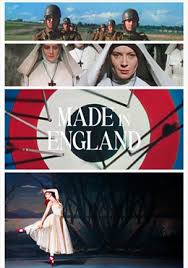
HTN: The parallel drawn to Travis Bickle towards the end, I thought that was a neat montage, talk about how that moment came to be, it came out great!
DH: It was all prompted by Marty. That relationship had not struck me before he said that. I went back and looked. I could see exactly what he was talking about. They are both people standing to one side, observing things, but at any moment they might explode. That is what I was trying to communicate in the connections I made. When you look at the films it’s all there on the screen. It was quite easy to do the editing once I had the concept to work with. It’s part of the larger idea that Powell and Pressburger liked complicated characters. So did Scorsese. They like anti-heroes. They like strange obsessive people. They are not interested in good guy bad guy movie making, and that is what makes them so rewarding.
TS: Michael and Marty always felt that you should never tell your audience how to feel. Mary hates that when he is watching a movie. Draw your audience in. That is the real skill. Michael told Marty to not use master shots and just cut right into the scene. Do not have a beginning and an end, cut into the guts of it, that is very important for filmmakers to learn.
HTN: In documentaries like Made in England, how do you balance factual presentation with creating an engaging narrative? This was riveting
TS: David had a lot of Marty’s writing, but it took a great deal of skill to write this script. David did a great job taking these massive filmmakers’ lives and capturing it at a runtime that was acceptable for distribution.
DH: A lot of it has to do with offering the audience new kinds of things. When I was choosing the clips for these features, I was searching for sequences that really communicate the essence of the movie. You also need these clips to reveal different aspects of Powell and Pressburger’s genius.
TS: Two things that Michael said to Marty and me when we were first spending time together was, “Never explain in a movie and always know that your audience is ahead of you, try and stay ahead of them!”
– Jack Schenker (@YUNGOCUPOTIS)

